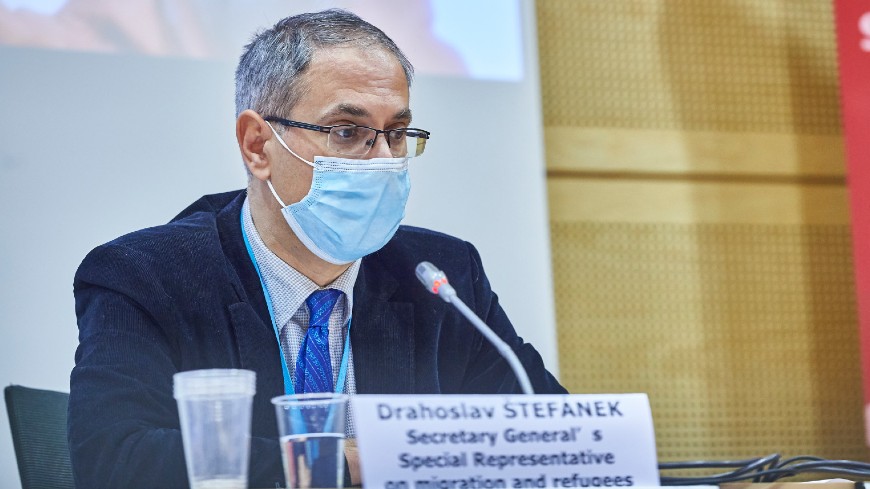On 17 December 2020, the Special Representative was invited to speak at the launching of the updated version of the Handbook on European law relating to asylum, borders and immigration by the European Court of Human Rights and FRA (European Union Agency for Fundamental Rights). In his address, he thanked both FRA and the Court for excellent co-operation extended to him and his office. He said that the Handbook is a comprehensive document, encyclopaedia, compendium of both civil and political rights as well as economic and social rights of refugees, asylum seekers and migrants. He reminded that in March this year, he published together with FRA a handbook called Fundamental Rights of Refugees, Asylum Applicants and Migrants at the European Borders, summarising key safeguards of European law as they apply at the EU’s external borders, bearing in mind that relevant Council of Europe instruments, including the Convention, apply to all borders. Regarding co-operation with the Court, in some cases, as the famous one N.D. and N.T. versus Spain, the report of the Special Representative of the Secretary-General was referred to, so the co-operation goes both ways, he said.
On 8 December 2020, the Secretary General introduced a draft Council of Europe Action Plan on protecting vulnerable persons in the context of migration and asylum in Europe (2021-2025) to the Committee of Ministers. The Action Plan was prepared by the Special Representative on Migration and Refugees and will be considered at one of the forthcoming meetings in 2021 in view of its adoption. Lessons learned from the Action Plan on protecting refugee and migrant children in Europe, completed in 2019 and discussions with member states revealed the need for further co-ordinated action with a wider scope than refugee and migrant children.
On 2 December 2020, the Special Representative participated in the TRT Forum 2020 and the session on ”Politics and Pandemics: Humanitarian Aid in the Time of Covid-19”. The session explored challenges faced by vulnerable populations in conflict zones and politically unstable environments, with regard to both the direct and indirect impact of the Covid-19 pandemic, and how multilateral international institutions and NGOs, have accommodated their strategies and action plans accordingly. “Migrants and refugees were already vulnerable, even before the times of Covid-19 pandemics. Now they have become even more vulnerable, including subjects to negative narratives, such as carriers of the virus. Instead, we should think of ways how to engage migrants and refugees in addressing the crisis, said Ambassador Štefánek.
On 27 November 2020, at the Prague Charles University, the Special Representative delivered a speech at the International Conference Commemorating 70 years of the European Convention on Human Rights (ECHR). The event gathered academics, legal practitioners and representatives of the Czech government. The conference aimed at addressing various aspects of the most important features of the ECHR system to celebrate its achievements and to discuss challenges. In this speech, the Special Representative gave a historical overview of the ECHR and migration law and emphasised that the ECHR is a living document, which can be adapted to the context and present circumstances.



